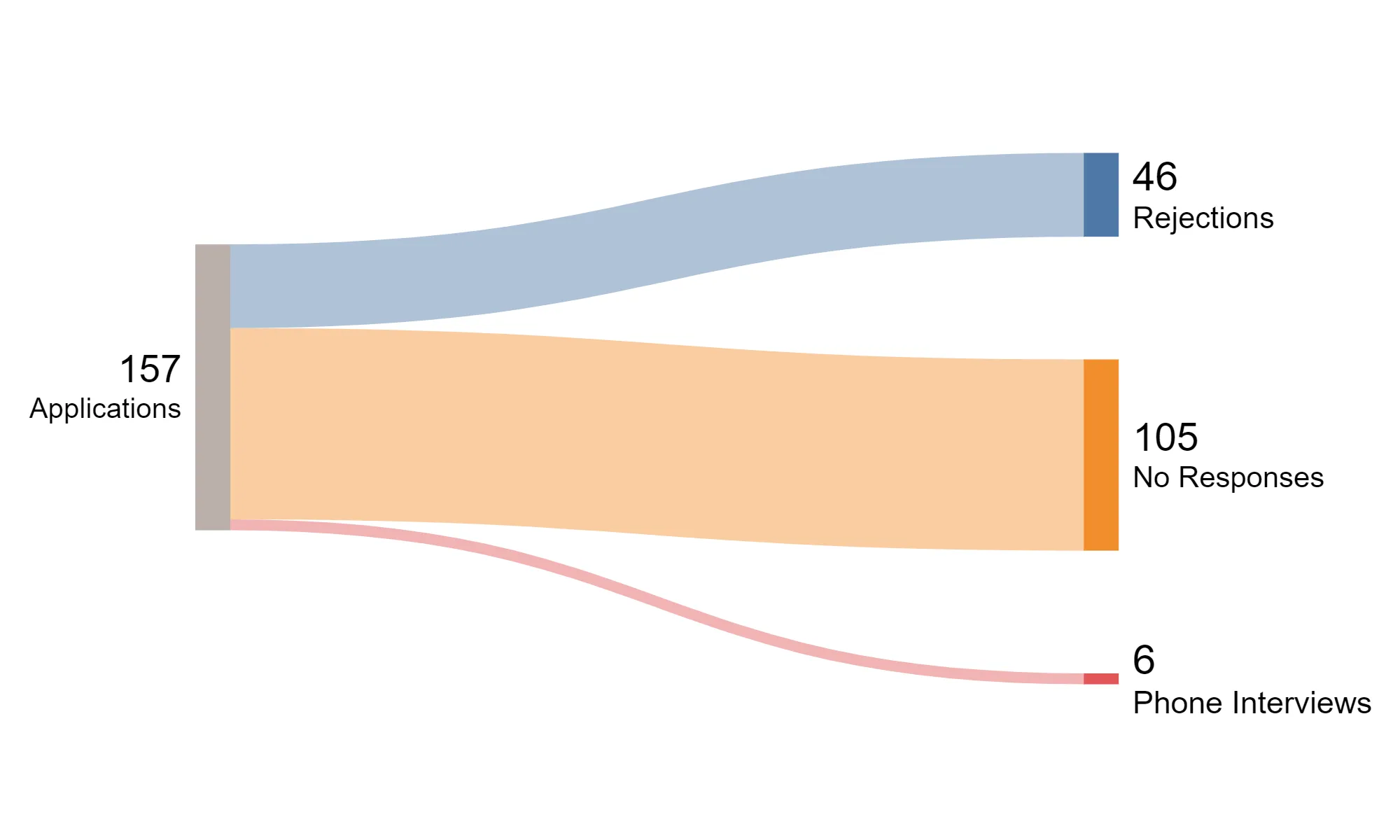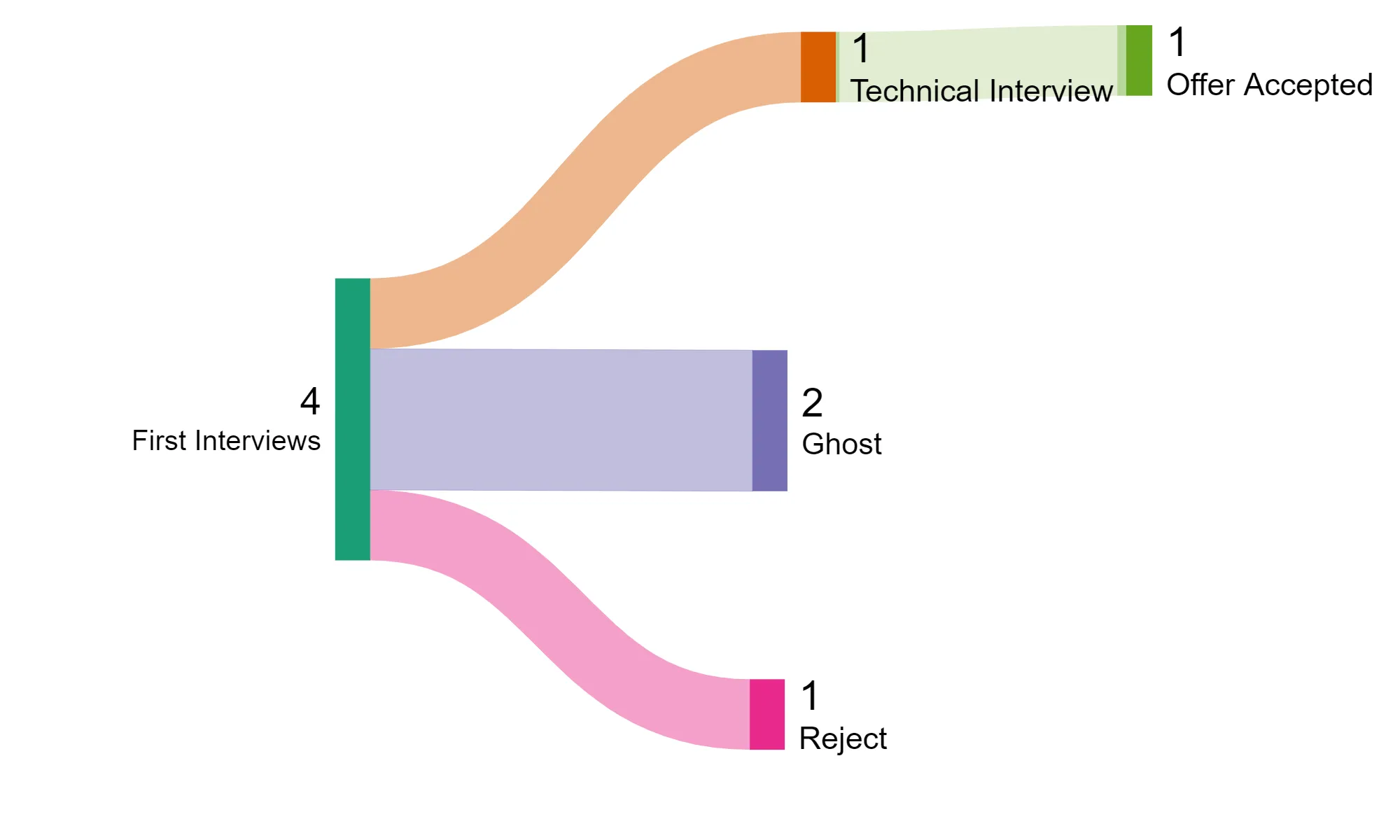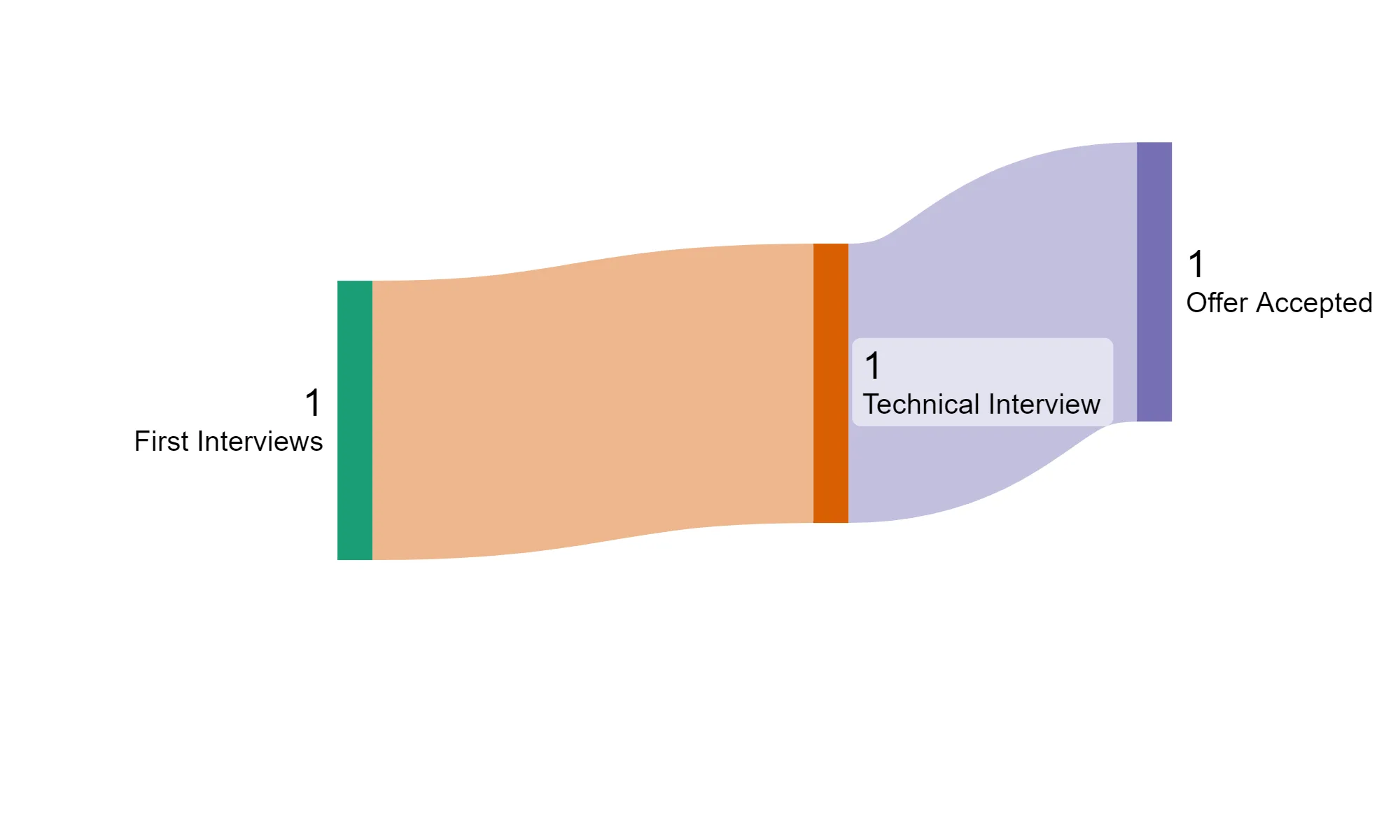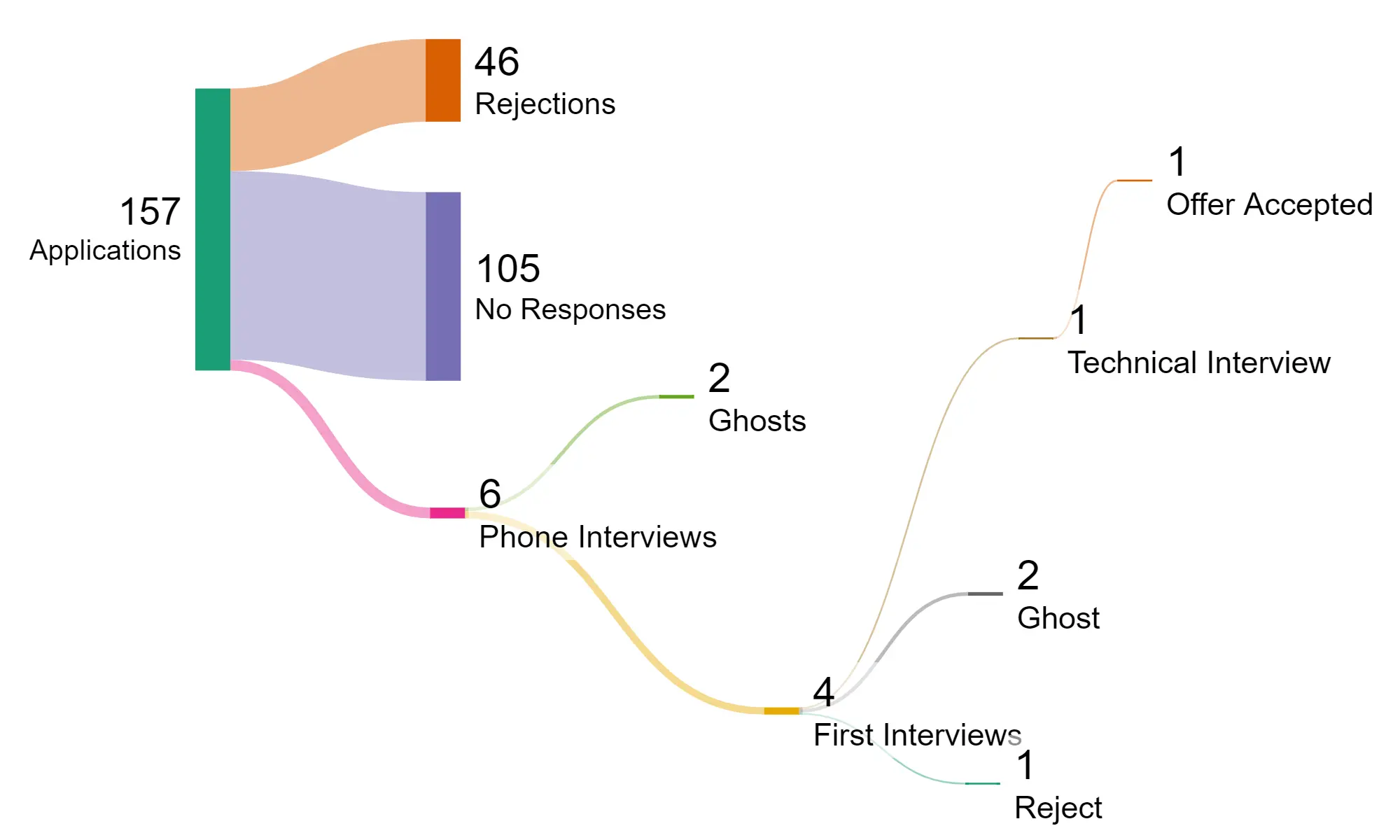Nine months. That’s how long it took me to land my first QA automation job in Bulgaria. When I sent my first application on January 8th, I thought I’d have something lined up within a couple of months. Boy, was I wrong.
By September, what started as casual job hunting had turned into a full-time mission. The Bulgarian IT job market in 2024 is nothing like what people make it out to be online. It’s brutal, saturated, and honestly pretty depressing at times.
But I made it through, and I want to share the real story – not the sugar-coated version you see on LinkedIn, but what actually happens when you’re competing with hundreds of other people for the same QA positions.
The Companies I Actually Wanted to Work For
I wasn’t desperate enough to apply everywhere (though I came close a few times). I had standards, which probably made things harder but kept me sane:
My Hard No’s:
- Gambling companies (there are way too many in Bulgaria)
- Gaming companies (just not my thing)
- Companies under 100 employees (unless they were genuinely interesting startups)
- Local-only Bulgarian companies
The last point might sound snobby, but there’s a reason. There’s this mentality in Bulgaria captured by the phrase “Щом е за нас” (roughly “as long as it’s for us”). Companies that only serve the Bulgarian market often have this attitude that leads to corner-cutting, toxic cultures, and limited growth opportunities.
🎯 My Motivation
My Application Strategy (What Worked and What Didn’t)
I see people on Reddit and forums talking about applying to 20 companies a day. That’s insane and counterproductive. You’ll burn through every decent company in Sofia within a week, and then what?
Instead, I focused on quality over quantity. For each company I applied to, I:
- Researched the company thoroughly – their products, culture, recent news
- Customized my CV to highlight relevant experience for their specific needs
- Wrote a personalized cover letter that showed I actually understood what they did
- Applied through multiple channels when possible (LinkedIn, company website, DevBG)
This approach took much longer per application, but it felt more sustainable. You can see my enhanced CV approach if you’re curious about the specific changes I made.
💡 Reality Check
The Numbers Game (And Why It’s Depressing)
Let me break down exactly what happened over those 9 months:

Total Applications: 157
- Rejections: 46 (29.3%)
- Complete silence: 105 (66.9%)
- Phone interviews: 6 (3.8%)
Those 46 “rejections”? Every single one was an automated email. Not one human being took the time to send a personalized response. It stings, but at least it’s closure.
The 105 companies that never responded? That hurt more. It’s like shouting into the void and not even getting an echo back.
The Phone Interview Phase (Where Things Got Slightly Better)
Out of 157 applications, only 6 companies called me for phone interviews. These weren’t technical – mostly just screening calls to see if I could string sentences together in English and wasn’t completely crazy.
Common questions I got asked:
- “Tell me about yourself” (I probably gave this answer 50+ times)
- “Why QA automation specifically?”
- “How did you hear about us?”
- “What are your salary expectations?”
💬 English Communication Tip
The Ghosting Epidemic: Two companies never followed up after the phone interview. No email, no call, nothing. This seems to be standard practice now, which is pretty unprofessional but apparently acceptable in today’s market.
First Round Interviews (Still Not Technical)

Four companies invited me for first-round interviews. These were mostly cultural fit conversations – learning about the company, them learning about me, discussing expectations.
❓ Interview Surprise
What I learned from these interviews:
- Company culture varies wildly, even within the same industry
- Some places are genuinely trying to build something great
- Others are just looking for warm bodies to fill seats
- Remote work policies are all over the place
The Results: Two companies ghosted me again (sensing a pattern?), and one sent a polite rejection email. At least they had the courtesy to actually reject me instead of leaving me hanging.
The Technical Interview (Finally, Some Real Questions)

Only one company brought me to the technical interview stage. After months of basic screening questions, it felt good to finally talk about actual QA work.
What they tested:
- QA principles and methodologies – test planning, bug lifecycle, different testing types
- Linux fundamentals – basic commands, file permissions, scripting
- Python basics – syntax, data structures, simple automation concepts
The interview wasn’t as scary as I’d built it up to be in my head. Months of preparation and studying had paid off. I could explain concepts clearly and even walk through some code examples.
💡 Technical Interview Prep
The Offer (Light at the End of the Tunnel)
After 9 months, 157 applications, and countless rejections, I finally got an offer. The relief was incredible – not just because I had a job, but because it validated that I wasn’t completely delusional about my skills.
The entire process taught me more about the job market than any article or YouTube video ever could. It’s not just about technical skills (though those matter). It’s about persistence, timing, and honestly, a bit of luck.
The Reality of Bulgaria’s IT Job Market in 2024
The Fake Job Posting Problem
Here’s something nobody talks about openly: approximately 70% of job postings in Bulgaria are fake or stale. I’m not exaggerating. I saw the same “urgent” QA positions posted across multiple sites for months.
Companies post jobs for several reasons that have nothing to do with actually hiring:
- Building a CV database for future use
- Making the company look like it’s growing
- Satisfying internal posting requirements before hiring someone they already chose
- Market research on salary expectations
The Two Main Job Boards (And Why They’re Broken)
DevBG and Jobs.bg dominate the Bulgarian job market, but both have serious problems:
- No effective spam detection
- Companies can repost the same job endlessly
- No feedback mechanism for fake postings
- Outdated jobs stay active for months
I started keeping my own spreadsheet to track which jobs were real and which were just marketing exercises.
The IT Academy Explosion
Everyone and their grandmother is trying to get into IT right now. QA, development, DevOps – doesn’t matter. There are dozens of academies pumping out certificates and “job-ready” candidates every few months.
The result? Every entry-level position has hundreds of applicants. Even senior roles are getting flooded because mid-level people are applying up and juniors are applying sideways just to get anything.
📊 Market Saturation Reality
HR Practices (Or Lack Thereof)
The fact that 66.94% of my applications received zero response isn’t just my bad luck. It’s systemic. HR departments are either overwhelmed, understaffed, or just don’t care about candidate experience.
Some patterns I noticed:
- Smaller companies actually responded more often than big corporations
- International companies had better communication than local ones
- Startups were either super responsive or completely unresponsive – no middle ground
What I Learned About Applications That Actually Work
After 157 attempts, I figured out what moves the needle:
LinkedIn Applications Beat Job Boards: When I applied through LinkedIn and could see who viewed my profile, I got responses more often than through traditional job boards.
Timing Matters: Applications sent on Tuesday-Thursday mornings got more responses than weekend or Monday applications.
Company Size Sweet Spot: Mid-sized companies (100-500 employees) responded most frequently. Tiny startups and huge corporations were hit-or-miss.
Custom CV Templates: I created different CV versions highlighting different skills depending on whether the role was more manual testing, automation-focused, or developer-adjacent.
The Networking Reality
Everyone says “networking is key,” but what does that actually mean in Bulgaria’s context?
LinkedIn Connections: I started actively connecting with QA professionals and occasionally got insights about job openings before they were posted publicly.
Local Meetups: Sofia has several tech meetups, but many were cancelled or moved online during my search period. The ones I attended were helpful for learning but didn’t directly lead to job opportunities.
University Connections: If you have them, use them. Alumni networks in Bulgaria are smaller but surprisingly effective.
💡 Networking Reality Check
Advice for Other Job Seekers
Set Realistic Expectations: If you’re entry-level, expect 6+ months of searching. The market is brutal right now.
Track Everything: Keep a spreadsheet of applications, responses, and interview feedback. You’ll start seeing patterns that help you improve.
Prepare for Ghosting: It’s going to happen. A lot. Don’t take it personally – it’s just how the market works now.
Quality Over Quantity: Better to send 10 well-researched applications than 50 generic ones.
Learn While You Search: Use the downtime between applications to improve your skills. The market moves fast.
Have a Support System: Job searching is emotionally draining. Make sure you have people to talk to who understand what you’re going through.
Looking Back: Was It Worth It?
Absolutely. The job I landed is exactly what I was hoping for – good company culture, interesting projects, room to grow, and decent compensation. But the path to get there was much harder than anyone prepared me for.
If you’re just starting your QA job search in Bulgaria, don’t let this discourage you. The market is tough, but people are still getting hired. It just takes longer and requires more persistence than it used to.
🎯 Final Perspective
The Bottom Line
Finding a QA automation job in Bulgaria in 2024 requires:
- Technical skills (obviously)
- Persistence bordering on stubbornness
- Emotional resilience
- Strategic thinking about applications
- Realistic expectations about timeline
- A bit of luck with timing
The market is challenging, but it’s not impossible. Companies are still hiring – they’re just being extremely selective about who they choose.
Keep applying, keep learning, and don’t give up. Your persistence will eventually pay off.
Good luck! :D
Stay up to date
Get notified when I publish something new, and unsubscribe at any time.
